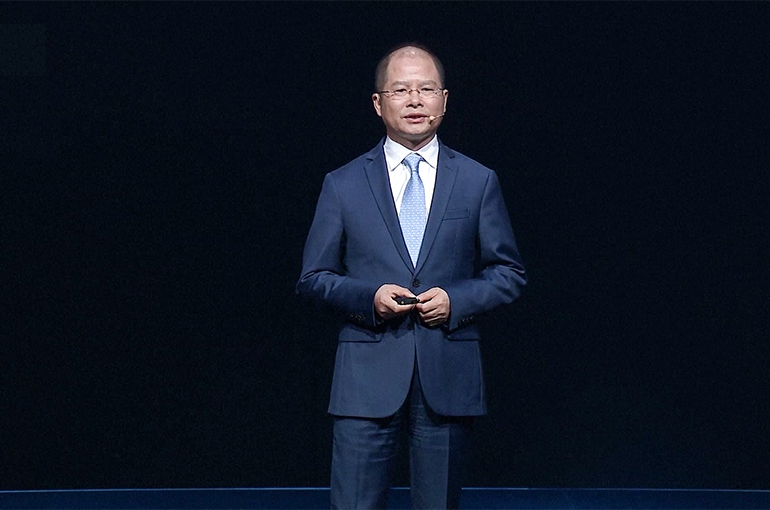 HarmonyOS App Ecosystem Is Huawei’s Key Focus for 2024, Rotating Chairman Says
HarmonyOS App Ecosystem Is Huawei’s Key Focus for 2024, Rotating Chairman Says(Yicai) April 19 -- Building an ecosystem for native HarmonyOS applications will be the most critical thing for Huawei this year, the current rotating chairman of Huawei Technologies said as the tech firm revealed its new Pura 70 series
The ecosystem is crucial to Huawei’s industrial development so the firm will invest heavily in it in the next five years, Eric Xu said in a (Yicai) April 19 -- Building an ecosystem for native HarmonyOS apps is the most critical task for Huawei Technologies this year, the Chinese tech giant’s rotating chairman said as the firm debuted the Pura 70, its new flagship smartphone series.
Huawei will invest heavily in the ecosystem as it is crucial to the company’s development in the next five years, according to the transcript of a speech Eric Xu made two days ago at the 21st Huawei Analyst Summit that was released yesterday.
More than 4,000 native apps have joined the HarmonyOS ecosystem, a 20-fold jump from the first 200 released in January, Huawei said earlier this month. Its aim is for all 5,000 of the apps that account for more than 99 percent of user time on smartphones in the Chinese market will have fully migrated to the HarmonyOS app store by December.
More than 4,000 have already confirmed their migration plans, while Huawei is in talks with the others, Xu said.
“When these over 5,000 apps, along with thousands more, migrate to HarmonyOS from the Android ecosystem, HarmonyOS will truly be built and become the world's third mobile operating system,” he said.
Huawei launched the self-developed OS as an Android alternative in August 2019, three months after the the US government added the Shenzhen-based firm to its so-called Entity List, curtailing its access to critical US technology. Its share of the Chinese smartphone market has been increasing ever since.
During his speech, Xu also covered Huawei's strategic initiatives for 2024, highlighting the company’s efforts to capitalize on opportunities in artificial intelligence and advance its All Intelligence strategy. Huawei intends to drive advancements in AI and build flourishing ecosystems for shared success as well as use AI to enhance the competitiveness of its products and solutions.
Huawei launched its AI strategy and Full-Stack, All-Scenario AI Portfolio in October 2018, Xu said. “Since then, we've been pressing ahead with this strategy, developing all manner of AI solutions in our advance towards All Intelligence,” he said.
One part of that strategy is to integrate AI into Huawei's internal management to boost efficiency while investing in basic AI research to promote innovation in the field.
Xu also touched on some trends in green energy and quick connectivity. New energy, mainly solar and wind power, will become the main energy source, he said.
The new energy vehicle industry will develop rapidly, transitioning from pure electrification to intelligence, Xu noted, while fifth-generation wireless networks and 5G-Advanced technology, which provides higher speeds and lower latency than 5G, will start to be commercialized on a large scale this year.
Editor: Emmi Laine